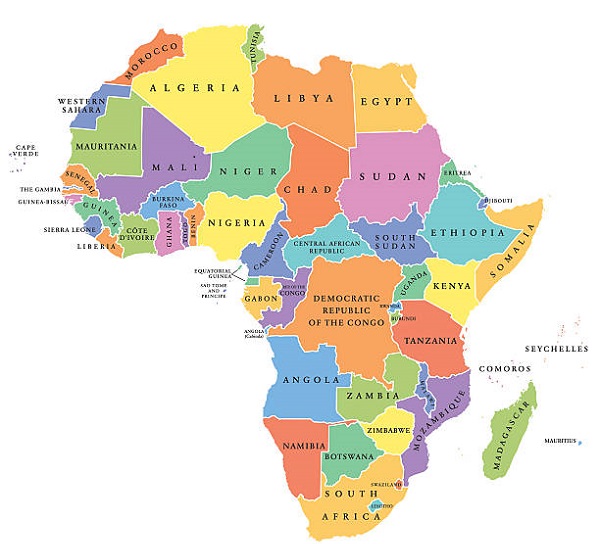
How Africans re-colonised Africa
IT is said that Africa is the richest continent with the poorest population.
Advertisement
And why not? Imagine a country whose head of state, an absolute monarch, has 15 wives in 2023, and can marry many more as he likes whenever he likes.
The DR Congo is commonly considered as the wealthiest country in the world in terms of natural resources, with an estimated value of 24 trillion dollars in natural minerals equivalent to the gross domestic product (GDP) of Europe and the United States combined.
Yet in 2010, DRC ranked 181st out of 183 poorest countries in the world.
Nigeria is blessed with 37.1 billion barrels of proven oil reserves and home to significant deposits of coal, iron ore, lead, limestone, tin and zinc.
The collective wealth of Nigerian billionaires stands at $77.7 billion, according to ‘Ventures Africa’, a business magazine.
Yet Nigeria ranks among the world’s poor.
Political class
To a (wo)man, everybody’s diagnosis of the Africa’s economic condition points a finger at the political class.
They negotiate the mineral deals with multinationals.
Each session of negotiations earns them a V8, a storey building at home and a vacation on the Alps with champagne imported from Paris.
But has Africa been like this forever, cursed with education and democracy?
For a fuller treatment of the cause, I turn the question: Have we always been “inferior” and weak, so easy to manipulate by western Europe and North America?
Centuries ago, there were the Moors, Africans who were a leading power in the 6th and 7th centuries.
They dominated the Mediterranean and North Atlantic, holding power over the coasts of Western Europe and the British Isles.
They gave the culture of learning in the arts and sciences to the Europeans.
A book published in 1610 mentions that the Spaniards were described as “a white people ruled by a Black one.”
This same cultural civilisation was brought into Portugal by the conquering Afrikan Moors.
The domination and rule of the Moors also reached into parts of Italy.
In 846 A.D., the city of Rome was held in a state of siege while in 878 they captured Sicily from the Normans.
Twenty years later the Moors took control of Southern Italy after defeating Otto II of Germany.
Facts
These are the facts hidden from the textbooks of African children today and totally ignored by Africa’s Ministers of Education responsible for producing the history books approved for use in schools.
We need to revise the image of Africa in the eyes of Africans.
A people who feel inferior cannot offer leadership to the world. No wonder we reject even the food we produce.
Better food, made in USA, western Europe and South Africa – produced with “superior” western technology - is coming to a shopping mall near us!
This need for a revisionist history of Africa envelop one as he/she rounds off a tour of Ghanaian and African filmmaker Kwaw Ansah’s multi-billion cedi Bisa Aberwa Museum in Sekondi.
As far back as I recall, the international media (BBC, CNN, Al Jazeera, Reuters, AFP etc.) have always been criticised for only reporting on the negatives of Africa, with stories focusing on poverty, famine, war and corruption.
Are they biased? Is it not the case that Africa is recolonising Africa? Take Ghana.
With Article 71 tightening around our necks, and a political class that will never allow a revision of the Constitution, have the poor of Ghana not been entrapped?
At the 2022 Brand Africa Forum, one of the speakers remarked: “China has got an agenda in Africa.
America has got an agenda in Africa.
All of Europe has got an agenda in Africa.
Only Africa doesn’t have an agenda for Africa …
“What we need to do [is] we need to stop blaming, we need to stop begging, and we need to stop borrowing.”
The writer is Executive Director,
Centre for Communication and Culture.
E-mail: [email protected]




